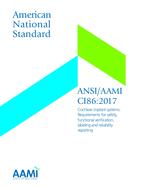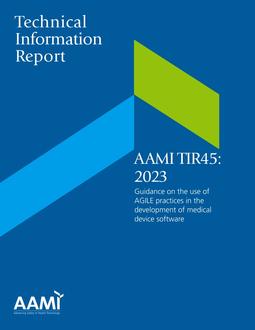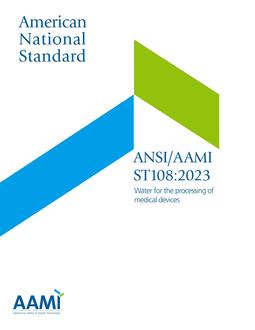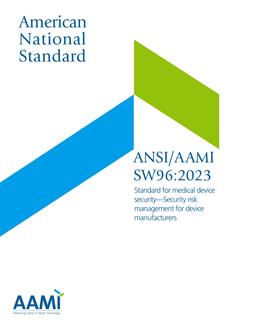
AAMI CI86:2017
Click here to purchase
This standard establishes minimum requirements for those active implantable medical devices known as cochlear implants or cochlear prostheses, which are intended to treat hearing impairment by means of electrical stimulation of the cochlea. Devices that treat hearing impairment other than by including electrical stimulation of the cochlea are not covered by this standard. This standard applies to the electrical stimulation component(s) of combination devices that treat hearing impairment using multiple means, including electrical stimulation. The tests specified in this standard are industry-accepted tests and are to be carried out on samples of devices to show compliance. This standard is also applicable to non-implantable parts and accessories of the devices, including fitting and diagnostic components. General and specific requirements are provided with regard to design verification, post-implantation device testing, reliability assessment and reporting, packaging and labeling, protections of the patient associated with design issues and device malfunctions, and protections of the device associated with environmental challenges arising from transport, storage, handling during implantation, unrelatedmedical treatments, and normal use. This standard establishes minimum requirements for those active implantable medical devices known as cochlear implants or cochlear prostheses, which are intended to treat hearing impairment by means of electrical stimulation of the cochlea. Devices that treat hearing impairment other than by including electrical stimulation of the cochlea are not covered by this standard. This standard applies to the electrical stimulation component(s) of combination devices that treat hearing impairment using multiple means, including electrical stimulation. The tests specified in this standard are industry-accepted tests and are to be carried out on samples of devices to show compliance. This standard is also applicable to non-implantable parts and accessories of the devices, including fitting and diagnostic components. General and specific requirements are provided with regard to design verification, post-implantation device testing, reliability assessment and reporting, packaging and labeling, protections of the patient associated with design issues and device malfunctions, and protections of the device associated with environmental challenges arising from transport, storage, handling during implantation, unrelatedmedical treatments, and normal use.
Product Details
- Published:
- 01/06/2017
- Number of Pages:
- 179
- File Size:
- 1 file , 2.9 MB


